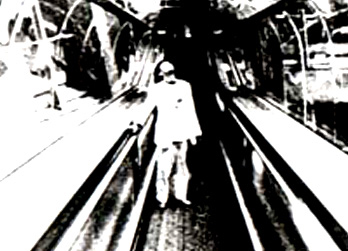Part of Summer 1992
Kidlat Tahimik is a Filipino filmmaker and shaman who applies his quiet strength and sharp wit to lead the viewer through the cultural maze of his homeland. Born in 1942 during the US occupation, Tahimik spent “the next 33 typhoon seasons in a cocoon of American dreams.” His first feature film, Mababangong Bangungot (Perfumed Nightmare), and his second film, Turumba, investigate the convoluted historical and political events surrounding the colonization of his homeland. Through concentrating on the individuals and communities that have been shaped and irrevocably affected by the technological age, he has created a humorous and incisive fable which explores his awakening to, and reaction against, American cultural domination.
Mababangong Bangungot (Perfumed Nightmare) 91 min, 1977.
Mababangong Bangungot is a semi-autobiographical film which follows Kidlat Tahimik (literally ‘Quiet Lightning’) as he discovers that the American dream of space travel, industrialization and technological superiority are really sweetly scented illusions which quickly reveal themselves to be less than benign.
An independent production costing $10,000 US, Perfumed Nightmare was funded in part through Tahimik’s work transporting people and objects in his jitney or ‘jeepney’ (abandoned American army jeeps which are salvaged and dismantled by Filipinos and rebuilt to become taxis). The ‘jeepney’ is prevalent in the film and acts as a metaphor for the cultural flotsam which infects an occupied country and the many ways resistance can flourish. Using first person voice-over Tahimik narrates this uniquely structured film which revolves around The Voice of America, The Werner Von Braun Fan Club and the desire to buy an electric light for his village’s only access Ñ a bridge. Tahimik juggles and juxtaposes American technology with traditional Filipino knowledge including pseudo-documentary accounts of First and Third World economic talks, folk tales and European travel films. As the film’s lead character, Tahimik mockingly takes on the role of a wide-eyed Third Worlder to lead the viewer through the swampy quagmire of cultural colonialism; in so doing he balances comedy and social critique. Shot in the Phillipines, Paris and Germany, Perfumed Nightmare depicts colonialism for what it really is: 500 years of a bad idea.
